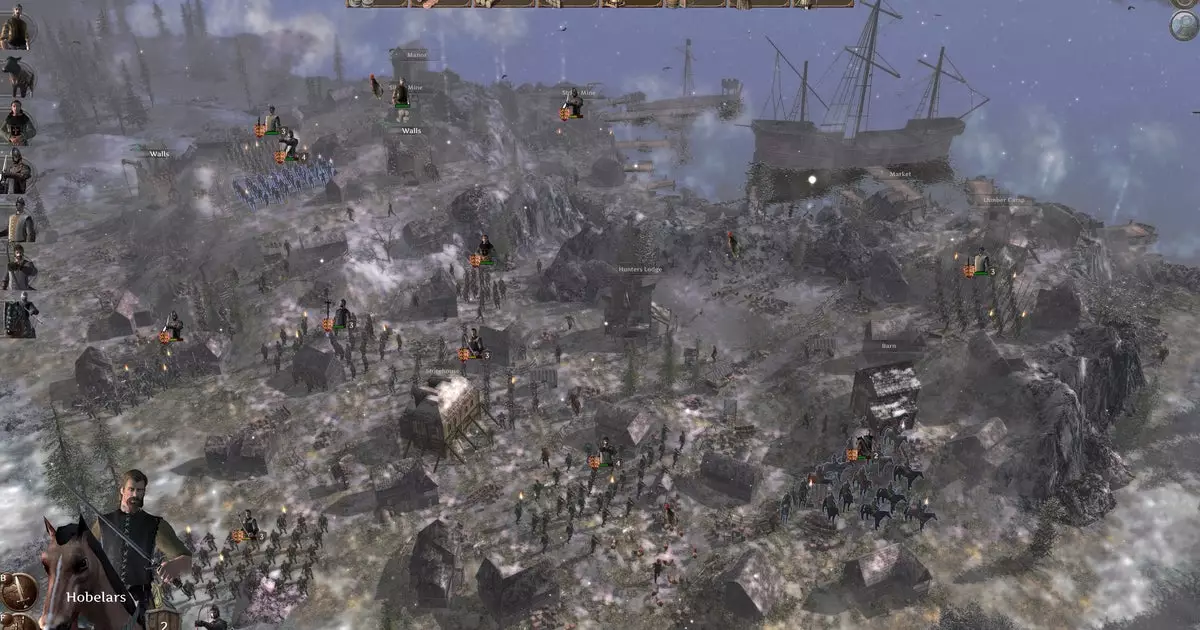The Crusades stand as one of history’s most polarizing and consequential series of events. These medieval religious wars, waged primarily between Christians and Muslims for dominion over the Holy Land, encapsulate a turbulent era marked by fervent zealotry and monumental conflicts. What began as a response to perceived existential threats to Christianity quickly spiraled into centuries of war, crusading fervor, and cultural exchanges. In our contemporary landscape, where historical narratives often merge with modern ideologies, the term “Crusade” has become a battleground in itself, wielded by those seeking to revive romanticized notions of chivalry and divine rights. This modern appropriation calls into question how history can often be stripped from its nuances and reshaped to fit various agendas.
The Lure of Interactive Interpretations
Enter the realm of video games, which have increasingly become a mechanism for historical exploration and interpretation. Titles like “Knights Of The Crusades” promise not merely to entertain, but to offer players a sandbox within which historical narratives may be experienced firsthand. This game, which invites users to maneuver through the gritty realities of the First Crusade and beyond, juxtaposes strategic gameplay against a backdrop fraught with complexities, allegiances, and the heavy weight of moral considerations. By taking on the mantle of leaders from both the Christian and Muslim factions, players engage in a dynamic reenactment of events, shaping their outcomes while simultaneously confronting the often brutal nature of these conflicts.
However, this artistic interpretation of history does not come without its potential pitfalls. The allure of a grand strategy game may inadvertently glamorize warfare, reducing multifaceted human experiences into mere gameplay mechanics. The use of militaristic language surrounding “raiding hamlets” and “putting innocents to the sword” can lead to a sanitized version of history that obscures the tragic realities faced by countless individuals during these campaigns. It raises an important question: Can the player create a nuanced historical understanding while maneuvering through dynamic maps and strategic battles? Or will the memories of the human suffering endured in the name of religious fervor be overshadowed by the thrill of conquest?
A Historical Playground or a Dangerous Facade?
The developers of “Knights Of The Crusades” emphasize the ambition to make every cultural faction unique, complete with distinct units and mechanics. This promise introduces an intriguing layer that could push players to appreciate the diverse experiences found within the historical tapestry. One hopes for a level of treatment that goes beyond simplistic good versus evil dichotomies, bringing in context, ramifications, and the everyday lives of people swept up in these vast movements. If successfully executed, the game could offer players opportunities to grapple with the ethical dimensions of their decisions—a necessary engagement if we are to avoid recreating historical atrocities through the lens of modern-day video games.
However, beyond the appeal of playing a virtual Templar or Saracen, one must consider the societal implications of reviving these narratives in popular culture. The risk of becoming merely a theater for escapism is palpable, particularly when one considers how contemporary figures have invoked the language of the Crusades to further their ideological agendas. By delving into packaged narratives where players align with historical warriors, there lies a danger of cultivating an uncritical admiration for violent triumphalism—a theme echoed throughout history, yet often misrepresented in modern discussions.
Understanding the Call for Exploration
The intersection of history, video games, and player agency invites intriguing implications regarding how we engage with our past. While the combined efforts of game developers to create immersive experiences can promote interest in historical periods often relegated to dusty textbooks, there exists an equal responsibility to represent these histories truthfully. Whether one is drawn to play as a noble knight or a fierce warrior, the mechanics of choice must encourage moments of reflection rather than the glorification of conflict.
The complexities of the Crusades cannot be boiled down to simple allegories of valor or villainy; they represent the entangled legacies of cultures grappling with faith, power, and humanity itself. Interactive media holds transformative potential, allowing individuals to analyze their roles within historic patterns, but it also necessitates a conscious commitment to understanding the weight of the past. As we embark on our own quests through these digital landscapes, may we remain aware of the narratives we choose to carry forth.

